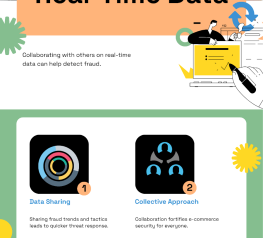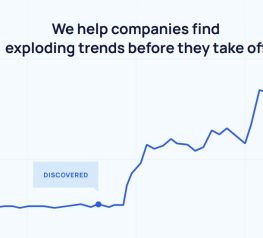The Essentials Of eCommerce Website Project Management Success
Navigating the realm of eCommerce can be daunting without effective eCommerce website project management.
This management is crucial for aligning teams, optimizing workflows, and delivering projects that resonate with your audience.
As eCommerce continues to evolve, the need for adept project management becomes even more paramount, serving as the backbone for successful online business operations.
Unveiling The Core Of Website Project Management
Website project management in eCommerce entails meticulous planning and coordination to ensure that online platforms not only meet user expectations but also drive sales and enhance customer experiences.
Effective management hinges on the integration of comprehensive project plans, agile team collaboration, and proactive stakeholder engagement.
By crafting clear project scopes and leveraging the right tools and methodologies—such as Agile, Lean, or Scrum—businesses can navigate the complex digital landscape efficiently.
Mastering Web Builds
The foundation of a successful eCommerce site lies in its construction.
Mastering the web build process involves selecting the right development frameworks and employing effective communication strategies to keep all team members on the same page.
Utilizing tools that facilitate task management and collaboration, such as Trello or Asana, can streamline the build process.
Staying informed about current best practices in web development and adhering to a structured project management approach can significantly enhance the outcome of your eCommerce projects.

Harnessing Cutting-Edge Tools And Technologies
Implementing advanced tools and technologies is essential for optimizing eCommerce project management.
These tools can automate repetitive tasks, streamline communication, and provide real-time analytics, enabling businesses to make informed decisions quickly.
Project management software like ClickUp can organize tasks effectively, while analytics tools can offer insights into customer behavior and project performance.
Engaging And Managing Stakeholders
Effective stakeholder management is critical for project success.
It involves identifying key stakeholders, understanding their expectations, and maintaining regular communication.
Engaging stakeholders throughout the project ensures their ongoing support and helps in aligning project goals with business objectives.
Techniques like hosting regular update meetings and using collaborative platforms can facilitate this engagement and ensure that all parties are informed and invested in the project’s success.
Navigating Ecommerce Success: Advanced Strategies For 2024
To excel in the ever-evolving eCommerce landscape, a comprehensive and dynamic approach to online business is essential.
Success hinges on integrating advanced digital strategies that leverage emerging technologies and insightful market analysis.
Understanding and implementing augmented reality can provide immersive shopping experiences, helping your brand stand out in a crowded market.
Embracing eco-friendly practices and aligning with consumer values can significantly enhance brand loyalty and customer engagement.

Leveraging Data For Precision Marketing
Utilizing analytics to understand customer behaviors and preferences is crucial for crafting targeted marketing strategies.
By analyzing customer interactions and feedback, businesses can refine their marketing approaches to enhance user engagement and conversion rates.
Personalized content, tailored to the needs and habits of customers, can significantly increase the effectiveness of your digital marketing efforts.
Optimizing Mobile Engagement
With the increasing dominance of mobile commerce, ensuring your eCommerce platform is optimized for mobile users is non-negotiable.
Implementing responsive design and accelerated mobile pages can enhance the user experience, improving access and interaction on mobile devices.
Considering mobile-first designs and features such as one-click ordering can significantly reduce friction in the buying process, catering to the on-the-go lifestyle of modern consumers .
Expanding Reach Through Social Media And Content Marketing
Developing a robust social media strategy is key to expanding your reach and building a stronger connection with your audience.
Utilizing platforms like Instagram and Facebook for targeted ads, engaging content, and live interactions can drive traffic and foster community.
Content marketing remains a powerful tool; consistently delivering unique and valuable content can improve your SEO and keep your audience engaged and informed.
Integrating user-generated content, such as reviews and testimonials, can further enhance trust and authenticity.
The Pivotal Role Of eCommerce Website Project Management
In the competitive world of eCommerce, effective project management stands out as a crucial element for success.
It ensures that all aspects of an online store—from web development and marketing to inventory management—are meticulously planned and executed.
The integration of robust project management methodologies like Agile, Scrum, or Kanban can significantly enhance operational efficiency, adaptability to market changes, and overall customer satisfaction.

Streamlining Operations With Project Management Software
Utilizing project management software is essential in modern eCommerce operations.
Such tools not only facilitate better productivity and risk management but also streamline workflows by maintaining clear lines of communication and task management across various departments.
Features like real-time updates, task delegation, and progress tracking can dramatically increase project transparency and team efficiency.
Emphasizing Automation In Project Tasks
Automation in project management is transformative, particularly in the eCommerce context where it can lead to significant time and cost savings.
Automating repetitive tasks allows teams to focus more on strategic activities and less on mundane processes.
This shift not only improves operational efficiency but also enhances data accuracy and aids in scaling project management efforts as the business grows.
Setting Clear, Trackable Goals
For any eCommerce project, setting clear and measurable goals is fundamental. These goals provide direction and a benchmark for success, fostering team motivation and focus.
Utilizing the SMART criteria—Specific, Measurable, Achievable, Relevant, and Time-bound—helps in creating precise objectives that align with the broader business strategy.
This structured approach to goal setting ensures that every team member understands their role and contributions towards the projects.

Final Remarks
As eCommerce environments increasingly utilize AI and machine learning, project management must adapt to these technologies to predict customer behaviors and automate decision-making.
This future-oriented approach will enable e-commerce platforms to dynamically adjust strategies, ensuring sustained competitiveness and market relevance. Make sure to visit our other blog posts for more insightful information on eCommerce








